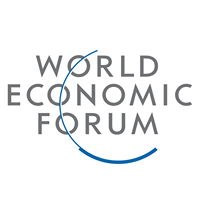The equal contribution of women and men in this process of deep economic and societal transformation is critical
This report finds that, globally, there remains much to be done.
Gender parity is fundamental to whether and how economies and societies thrive. Ensuring the full development and appropriate deployment of half of the world’s total talent pool has a vast bearing on the growth, competitiveness and future-readiness of economies and businesses worldwide. The Global Gender Gap Report benchmarks 149 countries on their progress towards gender parity across four thematic dimensions: Economic Participation and Opportunity, Educational Attainment, Health and Survival, and Political Empowerment. In addition, this year’s edition studies skills gender gaps related to Artificial Intelligence (AI).
The age of the Fourth Industrial Revolution (4IR) brings about unprecedented opportunities as well as new challenges. To take full advantage of new technologies, we need to place emphasis on what makes us human: the capacity to learn new skills as well as our creativity, empathy and ingenuity. By developing our unique traits and talents, humanity can cope with increasingly fast technological change and ensure broad-based progress for all. The Global Gender Gap Report will provide information on our current status in the process.
The equal contribution of women and men in this process of deep economic and societal transformation is critical. More than ever, societies cannot afford to lose out on the skills, ideas and perspectives of half of humanity to realize the promise of a more prosperous and human-centric future that well-governed innovation and technology can bring. This report finds that, globally, although many countries have achieved important milestones towards gender parity across education, health, economic and political systems, there remains much to be done.
On the one hand, countries where the next generation of women are becoming leaders in their domains are poised for further success. On the other hand, this year’s analysis also warns about the possible emergence of new gender gaps in advanced technologies, such as the risks associated with emerging gender gaps in Artificial Intelligence-related skills. In an era when human skills are increasingly important and complementary to technology, the world cannot afford to deprive itself of women’s talent in sectors in which talent is already scarce.
Since 2006 the Global Gender Gap Index presented in this report seeks to measure the relative gaps between women and men across four key areas: health, education, economy and politics. It does not seek to set priorities for countries but, rather, to provide a comprehensive set of data and a clear method for tracking gaps on critical indicators so that countries may set priorities within their own economic, political and cultural contexts. The Index also points to potential role models by revealing those countries that—within their region or income group—are leaders in distributing resources more equitably between women and men, regardless of the overall level of available resources.



